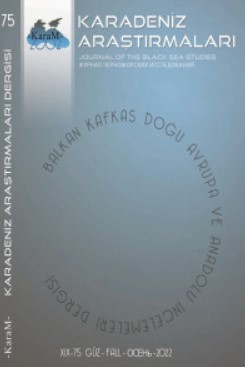ESKİ UYGURCA BUDİST METİNLERDE “SONSUZ” KAVRAM ALANI
THE CONCEPT FIELD OF “INFINITE” IN OLD UYGHUR BUDDHIST TEXTS
Author(s): Arda KaradavutSubject(s): East Asian Philosophy, Indian Philosophy
Published by: Karadeniz Araştırmaları Merkezi
Keywords: Buddhism; Old Uyghur; Concept; Concept Field; Infinite;
Summary/Abstract: As humans are finite beings, they have sought to understand and find the infinite throughout history. Theologians, philosophers, physicists, logicians, and mathematicians among those of other disciplines have all emphasized and tried to explain the notion of infinity in different ways. Ancient Greek philosopher Anaximander was one of the first Westerners to delve into this topic. Indian holy books serve as the first Eastern examples. In Buddhism, the concept colti nayuta literally meaning too many to count expresses infinity. One particular manuscript, the Surya Prajnapti, divides numbers into those that are countable, uncountable, and infinite. Several Old Uyghur translations of Buddhist texts contain many a word that loosely describes infinity. This study will explore that, and examine how the Uyghurs used to perceive infinity by examining between language and thought.
Journal: Karadeniz Araştırmaları
- Issue Year: 2022
- Issue No: 75
- Page Range: 909-922
- Page Count: 14
- Language: Turkish

